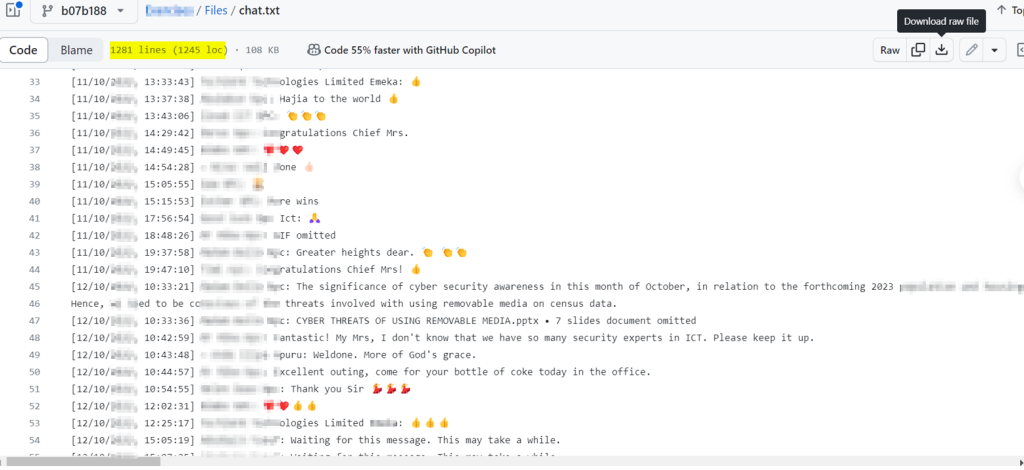GitHub: The Silent Data Harvesting Tool and Its Impact on Data Privacy and Security

GitHub has long been known as a platform for collaborative software development and version control, but it has also quietly evolved into a significant source of data harvesting. The vast amount of code, documentation, and other content hosted on GitHub provides a rich trove of information that can be exploited for data mining and analysis. While this may have some benefits for developers and researchers, it also raises concerns about data privacy and security.

One of the primary ways in which GitHub serves as a data harvesting tool is through the collection of public repositories. These repositories often contain sensitive information such as API keys, credentials, and other proprietary data that can be inadvertently exposed. Additionally, the commit history of repositories can reveal patterns of development, code changes, and potentially sensitive information about the development process.

Furthermore, GitHub’s web interface and API make it easy to search for and access large amounts of code and other content, allowing for the extraction of data on a massive scale. This data can then be used for various purposes, including profiling developers, identifying trends in software development, and even extracting sensitive information.
The impact of GitHub’s data harvesting on data privacy and security is significant. Developers and organizations may unknowingly expose sensitive information through their public repositories, leading to potential security breaches and data leaks. Additionally, the use of harvested data for profiling and analysis raises concerns about privacy and the potential misuse of information.

In a recent finding, our team discovered a chat log from an organization’s WhatsApp group that was uploaded to a public repository by one of their former interns. This mistake led to the internal communication of the group becoming public, potentially exposing sensitive information and conversations. This incident highlights the real-world impact of data harvesting on GitHub and underscores the urgent need for improved data privacy and security measures.

To mitigate the impact of GitHub’s data harvesting on data privacy and security, developers and organizations should be vigilant about the content they publish on GitHub. This includes regularly auditing repositories for sensitive information, using tools to scan for potential vulnerabilities, and implementing access controls to limit exposure of sensitive data.
In conclusion, while GitHub has become a valuable resource for collaborative software development, its role as a silent data harvesting tool raises important concerns about data privacy and security. Developers and organizations must be proactive in protecting sensitive information and mitigating the risks associated with data harvesting on GitHub.

Leave a Reply